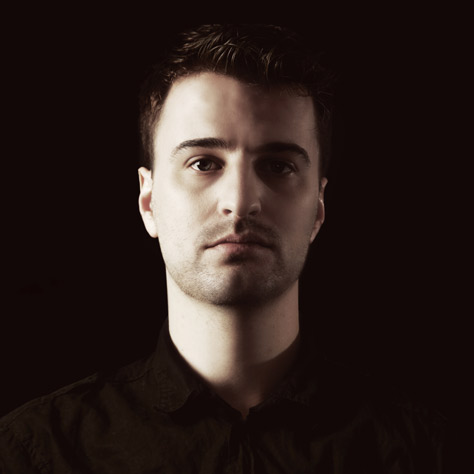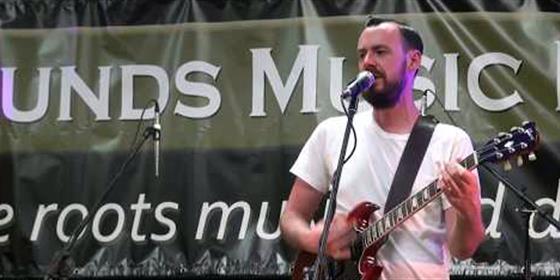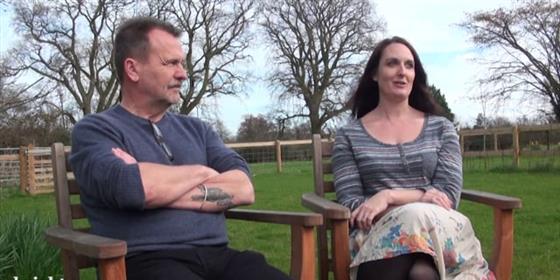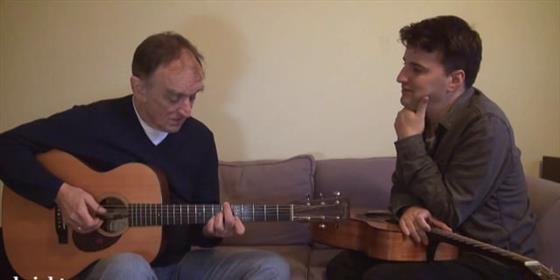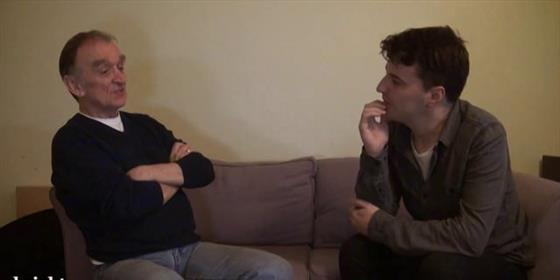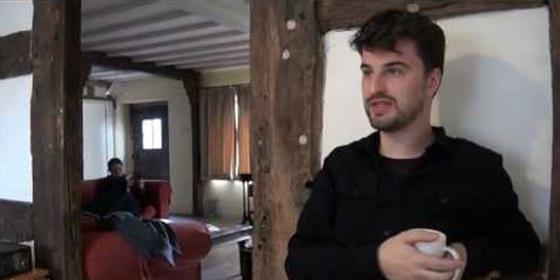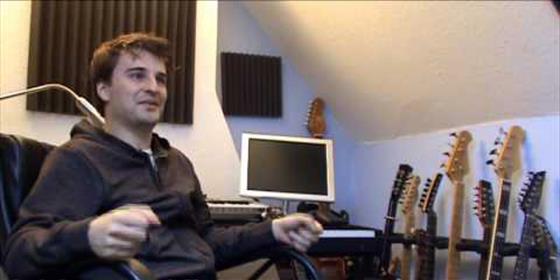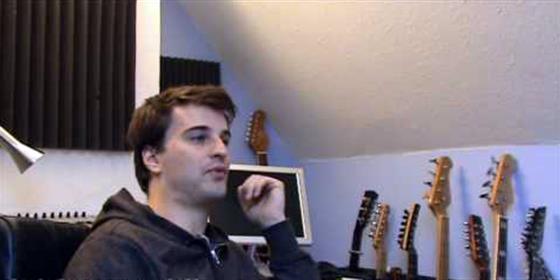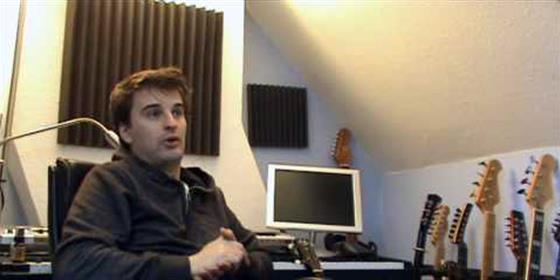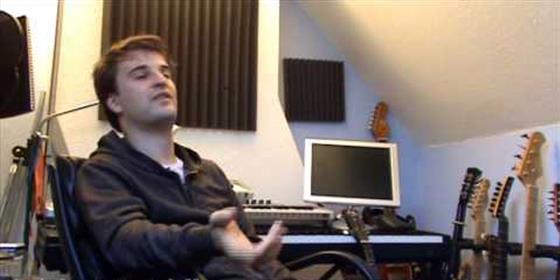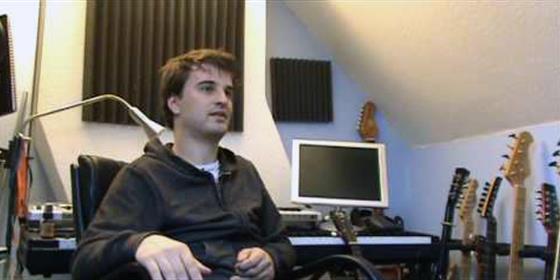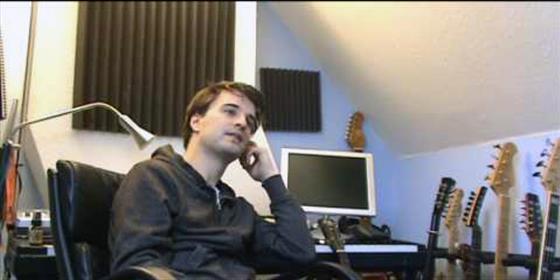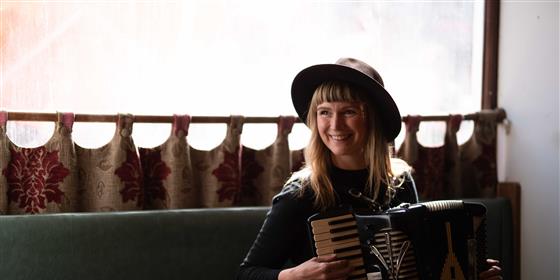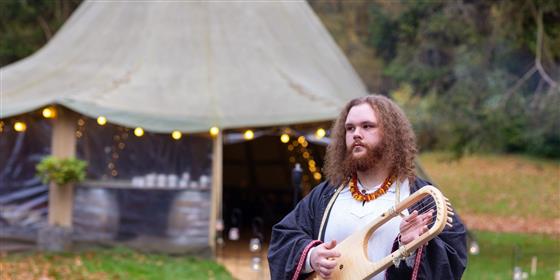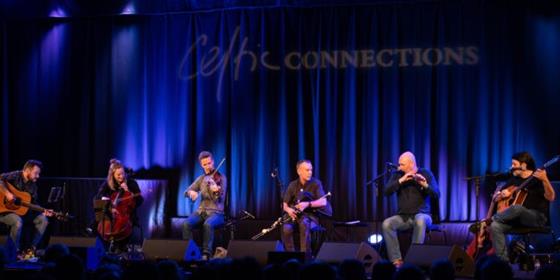Posted by Mark Dishman 06 January 2012
Today, on 6 January 2012, with little or no build up, Jim Moray announces a new album and you can buy it right now. Confused? Don’t worry, we’ve got the inside story from the man himself...
Your Twitter followers will have noticed a proliferation of foxes recently - and a skulk is a collective noun for foxes - what’s the fascination with them?
There is a family of foxes that live somewhere on Brandon Hill in Bristol and I started to see them quite a lot. It became a running joke that they were trying to tell me something - “Come join us”. I started to write a song based around an idea that is in a couple of traditional ballads (including some versions of Hind Etin and Fair Annie) - “I dreamed that my sons were seven greyhounds and I was the fox on the hill” but it actually got dropped from the final tracklisting.
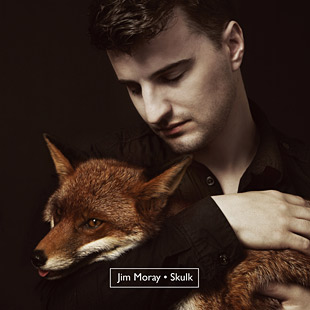 Sorrel (on the front cover) is quite a famous fox. It turns out that there are only a couple of acting foxes in the country so if you see a fox in a TV programme its probably Sorrel or her brother. Apparently they are in Eastenders every so often. They use the female fox for anything that involves being picked up or handled because they are a bit less musky, and the male fox for anything that involves running or being confident.
Sorrel (on the front cover) is quite a famous fox. It turns out that there are only a couple of acting foxes in the country so if you see a fox in a TV programme its probably Sorrel or her brother. Apparently they are in Eastenders every so often. They use the female fox for anything that involves being picked up or handled because they are a bit less musky, and the male fox for anything that involves running or being confident.
It was pretty much like having a photo taken with a wriggly Jack Russell. I think a lot of people will assume that it was a stuffed fox, or photoshopped in but it was important to me to do it for real because, well, if you can’t hire a fox to cuddle and fuss over for a day when you’re making an album cover when can you?
You’ve previously talked about wanting to make a big sound on your records, much of Skulk focuses on your acoustic playing.
About two-thirds of my gigs each year are solo acoustic ones and I started accumulating songs that fit that approach a bit more. The original idea was to make a completely solo “as live” album just to sell on the merch table as a stop-gap between albums but it got corrupted as time went on. I think the sound of the record is not actually that different to my previous stuff, it’s just that I’m playing an acoustic guitar or piano rather than electric guitar at the heart of it a lot more. The approach to writing and arranging is a bit different though.
Tell us about the guest musicians on the album.
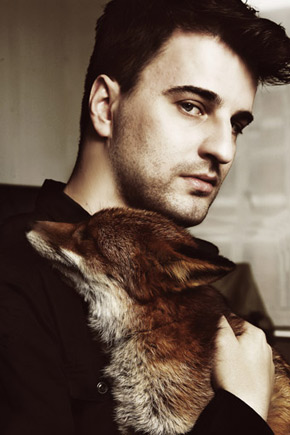
They were all people who happened to be in the right place at the right time. It seemed natural to have Jackie (Oates) sing harmonies on six tracks and I’d been working with Andy Cutting in the Cecil Sharp Project so it was a good opportunity to get him onto a track. I’ve been looking for an excuse to ask BJ Cole to play pedal steel guitar on something for years, so I was really excited that he agreed to play on ’Lord Douglas’. And then Pete Judge, Jake McMurchie and Daisy Palmer are all from the parallel jazz scene around Bristol and connected to J&J Studios where I recorded some of the album. Matt Downer from Mabon moved round the corner from me so that fell into place too. Nick Wyke recorded some fiddle for me and emailed it over.
Will the different sound of the album affect the way you tour it?
I’m touring from 26 February 2011 all through March and April solo so initially I’ll be playing these songs on my own, but we have some quite big band gigs in the summer to look forward to as well. Some things from the back catalogue work better solo than others, but the luxury of having five albums is that you have more to choose from.
A couple of the tracks are Child Ballads that you’ve reconstructed from a fragment. How do you go about doing this?
I have been through periods of being a very prolific songwriter but what I realised is that I’ve always just been a good mimic - I could still knock you up a Beatles or Elvis Costello pastiche given half an hour. But trying to be myself I often had nothing to say.
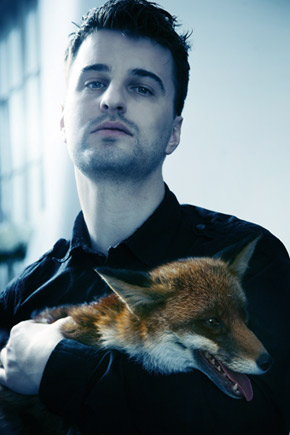 The wonderful thing about traditional music for writing is that it gives you a framework to work within. People like Martin Carthy and Nic Jones built a career out of heavily re-writing and re-building songs but it takes a lot of skill to do it seamlessly and sympathetically and I didn’t feel confident enough till now. I suppose it started with Long Lankin from the last album, which I was really proud of but didn’t think I’d recorded very well. However, when I finished Lord Douglas I knew that it was the best thing I’ve ever done. The story is the same (with one vital twist in the story that I added) but the tune is entirely new and the words are perhaps 85% mine. But it’s still a traditional song.
The wonderful thing about traditional music for writing is that it gives you a framework to work within. People like Martin Carthy and Nic Jones built a career out of heavily re-writing and re-building songs but it takes a lot of skill to do it seamlessly and sympathetically and I didn’t feel confident enough till now. I suppose it started with Long Lankin from the last album, which I was really proud of but didn’t think I’d recorded very well. However, when I finished Lord Douglas I knew that it was the best thing I’ve ever done. The story is the same (with one vital twist in the story that I added) but the tune is entirely new and the words are perhaps 85% mine. But it’s still a traditional song.
The same goes for Hind Etin which I’ve never heard another version of. I worked quite hard on the words of both songs to try to iron out any awkward bits and make the joins seamless.
This is the second album you’ve launched with a different, innovative release strategy. Are you experimenting to find the best way of doing it or are you aiming to keep your audience guessing?
It’s sort of an experiment, but the way people buy and consume music is constantly changing so it’s really just trying to reflect what’s the best option at the time. For Skulk I wanted people to be able to hear the music straight away and Bandcamp seemed a good way to do that and take preorders for the CD version. The other key thing is that it gives the album a chance to build some momentum by word-of-mouth first based on what it actually sounds like, rather than based on reviews in the national press.
The ’official’ release is 9 April 2012 but that three month wait would otherwise be really boring and agonising for me and seems stupid when I can get it on the internet the day after its finished. I don’t think its an approach that’s right for everyone and I’m not pretending its “the new model” for music distribution but its something that suits me at this moment.